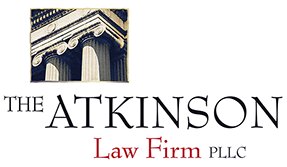Best Permanent Residency Lawyers in North Carolina
Share your needs with us, get contacted by law firms.
Free. Takes 2 min.
Or refine your search by selecting a city:
List of the best lawyers in North Carolina, United States
About Permanent Residency Law in North Carolina, United States
Permanent residency in the United States, often known as obtaining a Green Card, allows individuals to live and work permanently anywhere in the country, including North Carolina. While U.S. immigration law is federally regulated, individuals residing in North Carolina must often interact with local governmental agencies and legal professionals situated within the state. Achieving permanent resident status is a significant milestone for many immigrants and requires careful navigation of both federal requirements and supporting local processes, such as accessing certain services and documentation.
Why You May Need a Lawyer
Pursuing permanent residency can be a complex process involving significant paperwork and strict compliance with U.S. immigration laws. Common situations where people may require legal help include:
- Navigating eligibility criteria for family-based, employment-based, or other Green Card categories
- Addressing complications arising from previous immigration issues, such as visa overstays or unauthorized employment
- Communicating efficiently with United States Citizenship and Immigration Services (USCIS) and responding to requests for evidence
- Understanding grounds of inadmissibility and seeking waivers or relief
- Dealing with criminal convictions or other matters that can impact eligibility
- Resolving delays or denials of green card applications
- Assisting with adjustment of status or consular processing
- Advising on travel and work authorization during the application process
Legal professionals can provide guidance, review documentation, help prepare applications, and represent clients at interviews or hearings, increasing the likelihood of a successful outcome.
Local Laws Overview
While permanent residency is governed by federal law, local laws and practices in North Carolina can impact residents in practical ways. For example, North Carolina state agencies are responsible for issuing driver’s licenses, and residency status affects eligibility for certain state benefits, tuition, and identification procedures. North Carolina recognizes documents and immigration status as provided by federal authorities, but navigating local procedures such as obtaining a state ID or accessing public benefits may require proof of residency and legal status. Some counties or municipalities may have their own policies regarding cooperating with federal immigration enforcement, which could affect your interactions with local law enforcement or public agencies.
Frequently Asked Questions
What is a Green Card and why is it important?
A Green Card grants non-U.S. citizens the right to live and work permanently in the United States. It serves as official proof of lawful permanent residency and is important for those seeking long-term stability, employment, and a path to citizenship.
How can I apply for permanent residency in North Carolina?
Applications for permanent residency are processed federally through USCIS. Eligibility can be based on family relationships, employment, asylum or refugee status, or other categories. Living in North Carolina, you may need to attend interviews or submit biometric information at a local USCIS field office.
Can I get a driver’s license in North Carolina as a permanent resident?
Yes. Permanent residents in North Carolina can apply for a state driver’s license or ID by presenting their valid Green Card and other required identification documents at the Department of Motor Vehicles.
Does North Carolina offer in-state tuition for permanent residents?
Permanent residents may be eligible for in-state tuition at public colleges and universities in North Carolina, provided they meet specific residency requirements set by the state and educational institution.
How long does the permanent residency process take?
The timeline varies depending on the immigration category, the country of origin, and current backlogs at USCIS. Processing can take several months to a few years. Delays can arise due to incomplete documentation or additional review requirements.
Do I need a lawyer to apply for permanent residency?
Though not required, hiring an immigration lawyer can help avoid mistakes, respond to challenges, and ensure your application is as strong as possible. It is especially beneficial if your case is complex or you face legal hurdles.
What should I do if my permanent residency application is denied?
You should carefully review the denial notice to understand the reasons. Many decisions can be appealed or a motion to reopen or reconsider may be filed. Consulting with an immigration attorney is highly recommended to determine your options.
Can permanent residents be deported from North Carolina?
Yes. Permanent residents can face removal proceedings if they commit certain crimes or violate immigration laws. Legal advice should be sought immediately in such situations.
How can I prove my North Carolina residency for state purposes?
State agencies may require evidence such as a lease, utility bills, employment records, or other documentation showing your address within North Carolina. Your Green Card may also serve as proof of legal status.
What public benefits can permanent residents access in North Carolina?
Permanent residents may qualify for some public benefits, such as access to certain health care programs or assistance, but many benefits have waiting periods or specific eligibility rules. Contact the appropriate state agency to learn about your options.
Additional Resources
Individuals seeking further information or assistance with permanent residency in North Carolina can reach out to a variety of helpful organizations and agencies:
- United States Citizenship and Immigration Services (USCIS) for official forms and application status
- North Carolina Department of Motor Vehicles for driver’s licenses and state IDs
- Local legal aid organizations, such as the North Carolina Justice Center and Legal Aid of North Carolina
- American Immigration Lawyers Association for referrals to qualified immigration attorneys
- Area nonprofits and immigrant advocacy groups for community support and resources
Next Steps
If you are considering applying for permanent residency or are currently facing challenges in your immigration process, take the following steps:
- Gather all relevant documents, including passports, current visas, birth certificates, marriage certificates, employment records, and any prior immigration filings.
- Review official guidelines provided by USCIS to understand eligibility and required evidence.
- Consult with an experienced immigration attorney in North Carolina, especially if your case involves complicating factors or prior immigration issues.
- Prepare your application carefully, ensuring all supporting documentation is complete and accurate.
- Attend any required appointments at local or regional USCIS offices as scheduled.
- Remain informed about your case status and follow up promptly on any requests for additional information.
Professional legal guidance can make a substantial difference, so do not hesitate to seek assistance. Local organizations and legal professionals are well equipped to help you navigate the path toward permanent residency in North Carolina.
Lawzana helps you find the best lawyers and law firms in North Carolina through a curated and pre-screened list of qualified legal professionals. Our platform offers rankings and detailed profiles of attorneys and law firms, allowing you to compare based on practice areas, including Permanent Residency, experience, and client feedback.
Each profile includes a description of the firm's areas of practice, client reviews, team members and partners, year of establishment, spoken languages, office locations, contact information, social media presence, and any published articles or resources. Most firms on our platform speak English and are experienced in both local and international legal matters.
Get a quote from top-rated law firms in North Carolina, United States — quickly, securely, and without unnecessary hassle.
Disclaimer:
The information provided on this page is for general informational purposes only and does not constitute legal advice. While we strive to ensure the accuracy and relevance of the content, legal information may change over time, and interpretations of the law can vary. You should always consult with a qualified legal professional for advice specific to your situation.
We disclaim all liability for actions taken or not taken based on the content of this page. If you believe any information is incorrect or outdated, please contact us, and we will review and update it where appropriate.
Browse permanent residency law firms by city in North Carolina
Refine your search by selecting a city.









